David Ramos's Blog, page 16
June 13, 2017
Is Missing Church Bad? 3 Reasons Why It's Not
I no longer feel guilty skipping church on Sunday, here’s why...
MOM: We’re gonna be late...
Sound of door slamming shut. Feet quickly pounding down a staircase
Where’s your brother?
ME: He said he had to use the bathroom (I had to consciously hold back my smile…I knew my brother was going to get an earful for his inopportune time to answer nature’s call)
*My mom grumbles something in Spanish as she heads to the bathroom door*
Finish up or we’re leaving you here without you.
BROTHER: Good, I don’t w...
May 15, 2017
10 Podcasts for the Christian Whose Faith Is In Transition
Over the last 10 years, I have watched as my beliefs have changed.
My beliefs about what my life would look like.
My beliefs about how the world works.
And my beliefs about God.
When our beliefs change, it’s not like watching a Jenga tower fall. It doesn’t happen all at once.
Instead, it’s a slow process. You’re just going through your normal life when, one day, something happens. You hear somebody’s words or read an article online, and a tint of con...
April 29, 2017
The Fyre Festival, False Hope, And The One Thing That Could Have Changed It All
If you haven’t read about he carnage that was Fyre Festival, here are some good articles to start with:
Buzzfeed: Fyre Festival Descended Into Utter Chaos
New York Times: Fyre Festival, a Luxury Music Weekend, Crumbles in the Bahamas
In short, people didn’t get what they paid for. A musical festival held in tropics, promising to be the experience of a lifetime became exactly that – the experience of a lifetime, but in all the wrong ways. Comfortable rooms turned out to be refugee tents, five-sta...
April 28, 2017
What Steve Stephens Did To My Easter
We don’t get many sunny days in Cleveland, but this Easter was beautiful. The sky was bright with hope. My wife and I drove to church like normal, passing pastel colored signs and clever sayings in front of the dozen or so churches we pass to get to ours.
To our safe place.
We worshipped. Praised God for what His sacrifice did, is doing, and will do. We shook some hands and headed on our way to an Easter lunch.
During all of this, just a few blocks away, there was a man breaking.
A man who people...
April 11, 2017
Unqualified But Not Unequipped
A few weeks ago I listened to an interview with Steven Furtick, the pastor of Elevation Church, about his new book (Un)Qualified: How God Uses Broken People to Do Big Things. Steven is a passionate man, and despite what some of the critics say about him – I actually think he does a great job of bringing Scripture into a modern context and pulling out real value.
As the interview went on, Steven explained the story behind the word he chose to use for the book’s title. Another popular Christian...
March 23, 2017
How To Leave A Review For Your Favorite Podcast (In 4 Steps)
Podcasts are growing like wildfire these days. After only 2 months of having my Testament Heroes Podcast on iTunes, the audience has doubled in size and my monthly listens have grown from the hundreds into the thousands (which is still hard for me to believe!).
Podcasts are an excellent free resource to learn a new topic, help you change some aspect of your life, or (like mine) encourage you to build a daily practice of seeking God and His Word. Because the surge in podcasting is so new, it can be difficult to navigate how they work. There's no simple way (yet) to share a clip of an episode or a direct way to support the creators and their work. But there is one thing we can do that is both important and effective: leave a review.
I make sure to always leave a review for a podcast once I've listened to a couple of episodes. In reality, a review is much more than just a review, it's an opportunity for:
Giving the creator meaningful feedback and suggestionsShowing your appreciation for what they are doing and how they have helped youA resource for browsers to see if this particular podcast is actually what they are looking for.How To Leave a Podcast Review in the Apple Podcast App
Below I will walk you through how to leave a review in the podcast app (if you have an iPhone, iPad, or iPod). I've also included screenshots from my personal phone to help.

Step 1: Click on the Podcast App
On the lower right hand side of my screen, you will see the purple app with white circles that says Podcasts underneath. Go ahead and click on that. (Note: I moved my app to be in the bottom right corner. Yours will likely be on one of the first two screens of your device.)
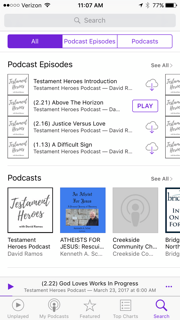
Step 2: Click on the Search Option
Once you are in the podcast app, you will see a number of options along the bottom panel. At the right end of the panel is the Search option (which is purple in the picture). Click on that and you will see the Search bar appear at the top of the screen.
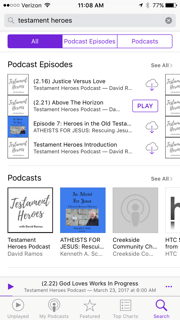
Step 3: Type in the Podcast Title or Subject
Once you click into the search bar, you will be able to find podcasts by their titles and/or their subjects. In the picture to the right I typed in "testament heroes." You can see that while it did bring up my own podcast, the search results also brought up related items.
The results list individual episodes first and the actual podcast itself below. To get to the next step for leaving a review, click on the cover art for the podcast you want to review (and not on an individual episode).
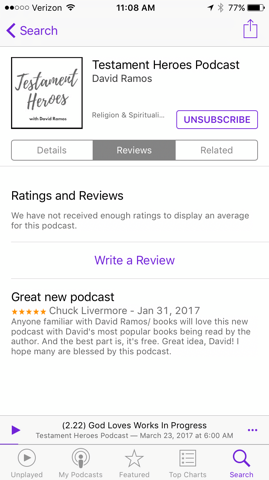
Step 4: Write the Review
You're almost there!
Once you click on the podcast cover art, you should see a screen that looks similar to the one I have on the right. Here you will see the cover art again, along with the option to subscribe, and another panel of options below that. In the middle of this panel is the Reviews section.
Click on the Reviews section and it will open up any existing reviews, while also giving you the option to Write a Review.
Click on Write a Review and you will be prompted to sign in to your Apple ID account (this is password you use to download apps, iTunes music, and more).
Once you're signed in, you can write a great review and give the podcast 1 to 5 stars. Once you've written your review, click Send in the upper right hand corner and you're all set! You officially submitted your first podcast review!
I hope you found this short guide helpful. If you have any questions, or see something that wasn't covered above, please tell me in the comments below.
Also, if you have not subscribed to the Testament Heroes Podcast yet, now is your chance! Give it a listen and be sure to leave it a review once you've listened to a few episodes - I truly appreciate it.
March 19, 2017
5+ Amazing Women Who Changed My Theology
Women have been writing and thinking deeply about God for just as long as men have. Yet, this truth seemed to be pushed under the rug until I made it to seminary. During my time at Ashland, I was exposed to dozens of female biblical scholars and theologians. It honestly caught me off guard at first. How could I have missed so many influential persons? How could “popular” church history and teaching ignore so many of the women who helped us get here?
The women listed below have guided me towards a more mature faith. When I believed I had finally figured out some singular piece completely, their writing prompted me to take another look from a different perspective. I owe them tremendously, and I encourage you to pick up one of their works if your exposure to female theologians could use some help as well!
Ann Spangler – Why God’s name matters.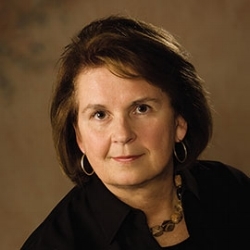
(Photo: AnnSpangler)
Spangler is best known for her books on the names of God, and for good reason. These books are an immense treasure, ones I have worked through and scribbled on extensively. She’s able to bring the complex subject of original languages down, not just to a level most people can understand, but to a level where it actually becomes attractive. When’s the last time you heard a Bible student excited to study Greek or Hebrew? Spangler preserves the power of the language while also making it accessible and applicable.
Sarah Bessey – A questioning faith is a real faith.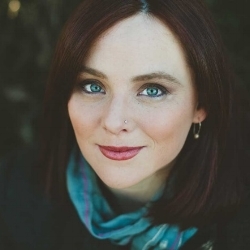
(Photo: Christianity Today)
If you ask me how or why I got my hands on the book Jesus Feminist, I couldn’t tell you. It just showed up in a pile of books I ordered from the library one day and I figured “why not.” Whenever I bring books home I always spend a few minutes flipping through each one. I check the table of contents, brush through to see if anyone has underlined or highlighted parts, and reread the section about the author. But once I picked up Bessey’s book, I didn’t set it down again until about 4 ½ hours later when I finished the book. It was that good.
Bessey writes like your best friend who knows more than you and has lived more life than you, but somehow isn’t cocky about any of it. She handles the subject of women in Christianity like a craftsman; building a strong, well-fortified argument, and does so gracefully. This author accepts the messiness of life by exposing her own messes and works to make the reader comfortable enough to share their own stories and to feel accepted even if they don’t.
That same weekend I got her second book Out of Sorts and also read that in an afternoon. Regardless of where you are in your faith, Bessey has something valuable to add to your life.
Carol Newsom – Why Job matters for the modern age.
(Photo: Emory University)
Newsom is the Charles Howard Candler Professor of Old Testament at Emory University. She has written extensively on the Old Testament. But for me, Newsom’s influence comes down to one major work: The Book of Job: A Contest of Moral Imaginations.
Many of you know that Job is my favorite book of the Bible. It’s difficult, beautiful, long, frustrating, and complex. It presents a struggle every Christian has to face at some point in their lives – the reality that God is different than we think. No matter how much we know about God, the reality of who and what He is will always remain infinitely beyond us.
Newsom helped me enter the struggle and accept that I could cherish a God I would always struggle to understand. On top of that, she laid the groundwork for how to enter into conversation with those who think differently than me. Job can act as a template for how we approach the current fracturing in the church. Overall, she is a master scholar and one I hope to study under one day.
Mitzi Smith – How to make the Bible come alive.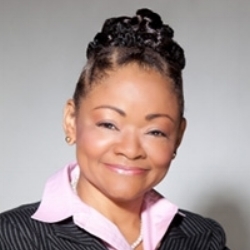
(Photo: Ashland University)
My first encounter with Dr. Smith was at my seminary graduation. I was able to graduate during the summer, even though I had one more senior seminar course to take. She was sitting on the graduation stage. Then, midway through the start of the ceremony, the president asked her to come forward and read a portion of Scripture. No matter how hard I try, it’s impossible to do justice to the way she read the Bible. The closest thing I can equate it to is that she set the book on fire for our ears and hearts. She read it as if it was the truest thing we had ever heard, like each word was breaking her heart, and yet it felt good – as if she grew lighter after reading each verse.
Not only was Smith’s reading of Scripture beautiful, so was her depth of understanding. Even though I tend to live in the Old Testament, she opened up the New Testament in ways I had never seen before. There were things laid plain in Scripture that I (and my upbringing) had just always overstepped. Even though I was exhausted by the end of my seminary journey, Smith sent me off with a jolt of revival. Yes the Bible is difficult, yes the journey is long, but the work is important, and the rewards are immeasurable.
Joyce Meyer – An introduction to popular theology.
(Photo: Joyce Meyer Ministries)
I couldn’t have been more than 10 or 11 when I picked up my mom’s copy of Battlefield of the Mind by Joyce Meyer. I had grown up in Bible studies and youth groups (mostly in Spanish Pentecostal settings), so I knew the basics. But Meyer showed me something, up until then, I had not known was possible: the Bible isn’t only there to make you a better Christian, God wants to make you a better person. This was the beginning of a long journey of my evolving faith.
Joyce Meyer can get a bad rap at times for being part of the “prosperity gospel” crowd. It’s true, I don’t read much of her work anymore. But that does not diminish the profound respect I have for her, and the instrumental role she played in getting me to start thinking about the Bible seriously from a young age. On top of that, she laid much of the groundwork for modern popular female Bible teachers, like Beth Moore, to have such a large scale impact.
At every significant turning point in my theological journey, there has been a woman a there. A female leader or teacher with profound insight and a deep love for God. I hope these women will be a starting point for you to look back at what women have influenced you, as well as motivation to look forward to how women are impacting the church for good!
The idea for this post came from another writer, Maggie Dawn, and her post There are no women on my theology bookshelf.
PS: The title said 5+, so here are the +…3 more women who have had a great impact on my beliefs.
Anne Lammott – Her writing is a cold ice tea on a hot August day (and yes, the ice tea may be spiked).
Katharine Dell – Another incredible Old Testament researcher, and writer on the book of Job.
Pamela Eisenbaum – If you have not read her book Paul Was Not a Christian then consider that your homework assignment.
Uncomfortable about women in church leadership? Here’s a good resource to start with: Two Views on Women in Ministry (Counterpoints: Bible and Theology)
March 15, 2017
5+ Remarkable Men Who Transformed My Theology
“Every great achiever is inspired by a great mentor.” - Lailah Gifty Akita
Over the years I have had the opportunity to read hundreds of books by dozens of brilliant, God-loving, life-seasoned authors. Of these, a few have left impressions deeper than most.
I wholeheartedly believe you can be “mentored” by men and women you have never met. If you take the time to read their words and think deeply about why they wrote them, you cannot help but be shaped by them.
These men have met me at the mountaintops and valley-lows in my life. They took my mind’s hand and led me to new places. Both places I didn’t know existed and ones I deeply feared. If you’ve never read any of their work, read this post and then grab one of their books!
John Piper - How to love God more than anything else.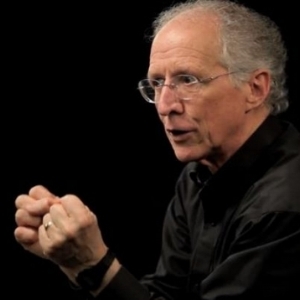
(Photo: Facebook/Desiring God)
I was in my second year of college (first year at a Christian college) when my roommate handed me a book that would forever change how I thought about the Christian life: Desiring God. Piper is a giant within the Reformed, conservative community. A scholar by training, he felt called to go into ministry after teaching for only a few years. Once he landed in Bethlehem Baptist Church, he remained there for over 30 years of faithful ministry.
Piper helped me understand the gap that often lies between knowing about God, and knowing God. Just a glance at his works (The Pleasures of God, Don’t Waste Your Life, Future Grace) and it’s clear that he is not writing as one who just thinks about God, but one who regularly meets with Him – and the fruit of those meetings is the what we get to glean in his writings. He is the proverbial Moses, coming down the mountaintop with his face aglow with God’s presence.
He is far from a perfect man, but he is an example I hope to follow in my walk.
William Paley - How to recognize what the world around us is telling us about God.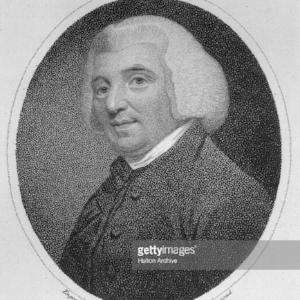
(Photo: Getty Images)
I first stumbled upon Natural Theology in an apologetics class. Paley is famous for his “teleological” argument for the existence of God. I was never much for apologetics; although I see the value in being able to argue and defend one’s faith. I was much more interested in diving into the text of Scripture.
But Paley was a key figure who caused me to raise my head and notice the world in a redemptive fashion. Every piece of creation has something to teach us about God: the order of creation, the details of the smallest organisms, the expanse of the universe. God has, and is, revealing Himself to all of us every single day. We just have to learn how to be observant enough to care, and brave enough to ask why.
Walter Brueggemann – How to study the Bible like you mean it.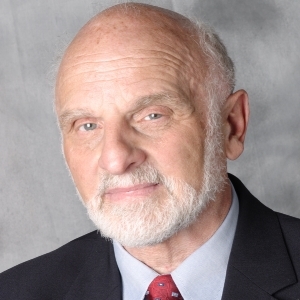
(Photo: Westminster John Knox Press)
Do you know how you can get Mexican food without getting “real” Mexican food. Rather than the authentic ingredients and flavor, it’s just a version of Mexican that satisfies you. The sad thing is that some people never realize that what they’re tasting isn’t the “real” thing!
When it comes to studying the Bible, Brueggemann is the “real” thing. He’s the flavor so many other pastors and writers and scholars aspire to, but just can’t quite measure up. While there are many great teachers of the Bible out there today, few have lived in it like Brueggemann has. The Bible isn’t merely his hobby or profession. It’s his life. It’s his air, and it shows.
The first time I read his Introduction to the Old Testament, I had already spent the last 3 years seriously studying (at least in my opinion) the Bible. However, I wasn’t even able to make it past the first 2 pages of the introduction before Brueggemann tore down my framework and began to build a new one. One built on stronger ground, with better materials, and which has enabled me to climb higher than I’ve ever thought possible.
Richard Foster - Raw humanity produces powerful prayers.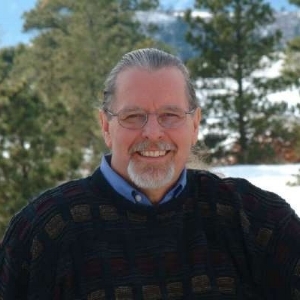
(Photo: Renovare)
Next to my NIV Bible, Foster’s book on Prayer is the one book I have read the most times. It is my encyclopedia on prayer. Every time I come to it, I learn something new. I’m exposed to a fresh technique, or the Holy Spirit uses it to call me out in areas I have slipped.
Foster can get a bad rap at times for his openness to the Christian mystics. Yet, his methodology on prayer has much more in common with the historical church than do our modern “God bless my day and bless my food” prayers.
He constantly pushes me to pray as if God is actually listening. As if God cares. And, most of all, as though God is powerful enough to do something. We cannot be strong Christians and weak prayer-warriors.
Dr. Gregory Boyd and Dr. Peter Enns - How to be unrelenting in one's faith and unafraid to ask terrifying questions of the Biblical text.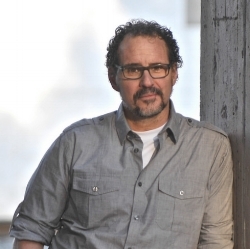
(Photo: ReKnew)
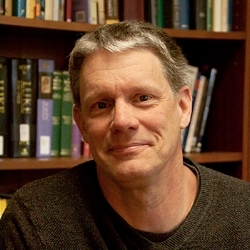
(Photo: PeteEnns)
In many denominations, the Bible has become a sort of idol. Instead of taking it off the shelf and working through it to understand God, we leave it on the shelf and worship it as though it was as untouchable as God.
Two writers have sensed this growing frustration within the church and have been writing to rectify it: Dr. Gregory Boyd and Dr. Peter Enns. Ironically, I didn’t discover these writers through their books but stumbled across them on YouTube. Through their short videos and interviews began to transform my understanding of Scripture. They didn’t tip-toe around the historical landmines. Instead, the dove right in and showed that yes – it is confusing, but it is not dangerous. The Bible is beautifully complex, and when we try to pretend like it’s not, we suffocate it.
Two recommended videos:
Peter Enns – When Apostles Misquote the Bible https://www.youtube.com/watch?v=Z7zSDp8LBic
Gregory Boyd – What is Open Theism? https://www.youtube.com/watch?v=gApXDGjyksw
These are just five men of the hundreds who have shaped how I think and interact with God and my faith. Again, if you’ve never heard of one of them before, I recommend you pick up one of their books. Next week I’ll take a look at a related subject: 5 women who have shaped my theology.
In the comments below:
Who has shaped your theology?March 11, 2017
How Trees Survive the Winter (A Guide for Growth in Difficult Times)
One of my earliest childhood memories is of my grandma and I sitting in the living room, staring at the tree outside the window. It was a younger tree, standing a proud 10 feet tall. Its branches were long and wiry. Its leaves were scattered and, instead of blocking the sun, they would make elaborate patterns across the living room floor. It made me feel small, but in a good way. The way a big hug envelops you and makes you forget about life’s troubles.
Ever since then I’ve had a fascination with trees. If humans are a little lower than angels, I’d like to think nature is a little below us (Hebrews 2:7). And even if nature cannot talk or read or think, it can celebrate its Creator, and teach us something about life.
Like humans, nature is confined to a lifecycle. It grows, reproduces, and eventually, dies. Nature lives in our world, is affected by the decisions we make, yet somehow survives. The tallest trees are over 300 feet tall. The oldest have stood their ground for thousands of years. They are monuments of fortitude.
As a northerner growing up near Lake Erie in Ohio, I have seen my fair share of harsh winters. Snow can pile up so high it has to be counted in feet rather than inches; and temperatures can drop so low, you’d wish negative numbers didn’t exist. Yet through all the snow storms and cold bouts, trees survive.
During the past month I have spent a lot of time studying how a person grows: physically, emotionally, mentally, and spiritually. I want to understand why Christian growth is so difficult, and why it can feel like we are making no progress at times.
I believe nature, specifically trees, have something to teach us about growth. Especially growth during cold, hard seasons. There’s a method to their fortitude, and hopefully one we can apply.
There are three steps every tree takes when it is faced with the seasonal change to winter. These three steps are not necessarily sequential. Instead, they work in tandem. Each one spurring on the next until the tree is as secure as it can be.

Step 1: The tree slows (or stops) growing.
The process for a tree is similar to that of an animal. Except, instead of calling it hibernation we call it dormancy. When a tree goes dormant that just means it has significantly slowed the process of growth. All of the food and energy it consumed are now only there for reserve and survival purposes.
Growth is an “expensive” endeavor in terms of what it requires of the living organism. If you have ever looked up the diet plans for professional athletes or bodybuilders, it’s almost unbelievable how much food they have to intake in order to achieve and maintain their results.
In the same way, a tree consumes enormous amounts of energy throughout the year. However, since winter brings along less access to sunlight and water, the tree has to prepare to “eat” less and begins to slow down and hit pause on its growth.
Step 2: The tree loses its leaves.This process only occurs in deciduous (regular, leafy) and not in coniferous (evergreen, pine needle) trees. Deciduous trees lose their leaves in order to preserve moisture and retain water. Leaves help trees grow during the year, but without the process of growth occurring, they just become a drain on the entire system.
Our bodies mimic this activity in the winter. When we are cold, our extremities (fingers and toes) will go numb first. This happens because the blood flow becomes concentrated around our vital organs. In order to protect the person, some parts have to be forfeited. Same with the tree: in order to preserve it through the winter, the beautiful leaves have to be abandoned for a time.
Step 3: The cells adapt.There are at least three processes which could occur at the cellular level once a tree is on the verge of preparing for winter. But there are only two possible outcomes. One, the cells become more pliable (like Playdoh) so that they can adapt to the formation of icicles. Two, the cells become harder (like a rock) so that they will not be harmed by the harsh temperature and ice.
It comes down to making sure the cells stay alive: “That’s the key for the tree; don’t allow living cells to freeze.” The tree will accomplish this either way it has to. Of the different processes, it doesn’t appear one is better than the other because, in the end, they change back.
Without these three steps, the tree would not survive the winter. If a tree were purely concerned with growing, it would expend itself to death. In nature, there has to be a balance between longevity and growth.
Now let’s take a minute and think about how these steps can apply to us as Christians.

Spiritual growth does not occur in a straight line.
The church has developed many words to characterize Christians who are not consistently experiencing victory and showing fruit. Backslider, lukewarm, etc.
But maybe these episodes are not hindrances to the process of growth but necessary milestones. I know in my own life there have been a number of times where I have fallen into a rough patch only to catapult forward afterward.
Sometimes growth can be dangerous. If a human grows too quickly, or too much, it puts so much stress on their body that serious complications can arise. Just because we cannot see our spirits does not mean they do not have their own limitations as well.
I believe growth comes in seasons. There are times where we sprout up and out and stretch ourselves without hindrance. Then there are other seasons where growth is difficult, or even non-existent. And we are forced to shrink back, to conserve energy, and pause so that growth may start again.
Christian growth can be summarized in a single word: surrender.I began tithing when I was very young. About 5 or 6. My allowance at the time was $5 a week. I was told, by my parents and pastors, that 10% of my money belongs to God. So I believed them, and gladly gave my tithe to the church. Over time, as my allowance turned into a salary, I continued to tithe. It wasn’t really a sacrifice in my mind because I was simply giving to God what was already His.
But then I started to grow up and God began to ask for more than just my 10%. I felt called into certain ministries. I felt called to leave jobs, schools, relationships and follow Him. I started to feel that God was overstepping His bounds. He was not only asking for what was His. Now, He was asking for what was clearly mine! My love life, my ambitions, my plans…these were my leaves.
In order to become who I was supposed to be and in order to “preserve” my life according to His purpose, He asked me to surrender. I don’t believe trees can feel pain, but if they did I imagine they would feel each leaf as it fell. Like a pluck or a pinch. Each one a reminder that surrendering to something greater comes at a cost.
Life will either make us pliable or hard.I recently took a cooking class and they explained the art of making bread from scratch. As part of the process, we learned to knead the dough, which is essentially massaging it (breaking it down) to a certain point until its ready to bake and will rise correctly.
If the dough is under-kneaded, the dough will be too fragile. Yes, it will be pliable, but it will tear easily and be too weak to rise as needed. If the dough is over-kneaded, it will become hard and too stiff to take the proper shape. The perfect spot is somewhere in the middle, where it is kneaded just enough to hold up. Pliable enough to accept change, but hard enough to not be torn.
God allows life to knead us. To break us down before He can call us to rise. The question is how will we adapt? Will we become too hard or too soft? Or will we accept the kneading process as necessary to our survival and His glory?

Trees survive the winter because they have too. If they do not survive the harsh seasons, they will never reach the points where they can grow and bear fruit. But how they survive those periods looks drastically different then when they are green and bearing fruit.
I don’t know what your life or walk with God looks like at this moment, but I want to encourage you. If your leaves have fallen, that doesn’t mean they will never sprout again. Maybe you’ve pulled back from ministry commitments, switched churches, or have experienced a drought in your prayer life. None of these make you a bad Christian. None of these make you weaker or less loved by God.
They make you human.
They make you a work in progress.
They mean you’re growing.
Sources:
How do trees survive in the winter?
Mother Nature Network
Northern Woodlands
February 15, 2017
Diet of the Mind vs Death to the Self
What is a diet?
A diet is a restriction. Usually of food or some other desired thing, for a temporary amount of time, in order to accomplish some goal.
We diet from carbs or sweets or fast food in order to lose weight and become healthier. We diet from television or movies in order to read or finish a project. We diet from stressful situations in order to collect ourselves.
Diets are difficult because they require us to give up the immediate good for the eventual better. Every diet is a tradeoff. But one made with the promise of two things.
First, that what I am giving up is worth the reward I will get afterwards.
Second, that I can have what I am giving up again after the diet.
Now, what is death?
Death is dark and heavy. It signifies the end. Death is loss and permanent separation. It’s nearly always unexpected, unwanted, and unstoppable.
People do everything they can to avoid death. We live our whole lives reading statistics and hearing stories about other peoples’ deaths, believing that somehow we’re excluded.
Even on a lighter note, we avoid small deaths. The death of relationships, the death of seasons, the death of opportunities. We believe the proverbial door will always remain slightly ajar, because the alternative is unpalatable. That a friendship could never be rekindled or an opportunity re-examined is unthinkable.
Somewhere along the way, sales advertising and sequels have convinced us that endings are only temporary. That a closed door will always reopen. And that death, in any form, does not actually exist.

Every year I try to pick a set of verses that will be my focus for the entire year. A while back, Colossians 3:1-17 was that set of verses. However, over time it has evolved from a passage I wanted to study, to a passage I knew, to a passage I could never forget.
Often, I find myself trying to live the Christian life like I would adhere to a diet. I plan, I avoid temptation, I peak over at what other people have on their “plates,” and convince myself that everything is fine because I am a Christian. And as a Christian, I am choosing differently.
I won’t look at that, or say that, or look like that because now, right now, for now, I am a good Christian. Sometimes I fall off the bandwagon, like any ordinary Christian does. In diets we call them cheat days. It’s where I decide to live like the world again. To want what it wants and to think like it thinks. But it’s alright so long as I go back to my Christian diet…

The problem is, Scripture doesn’t call us to go on a diet from this world. Jesus doesn’t ask us to switch to world-light or world-decaf. He asks for death.
I have been crucified with Christ. It is no longer I who live, but Christ who lives in me. Galatians 2:20If anyone would come after me, let him deny himself... Luke 9:23Truly, truly, I say to you, unless a grain of wheat falls into the earth and dies, it remains alone; but if it dies, it bears much fruit. John 12:24A diet is temporary.
A diet asks us to withhold from what we want.
A diet serves our goals.
Death is permanent.
Death asks us to stop wanting those things.
Death requires surrender to His plan

A diet is not easy. But a diet is nowhere close to death. And this is the difference Jesus is calling us to. If we try to “diet” our minds and set them on things above, we will always fail. They will always be pulled back down. The earthly things will always win out.
The life God offers is not one defined by pursuit. You don’t pursue death. You accept it. A diet is hard because it asks us to do something we do not want to do. Death is harder because it asks for something only God can do.
He must increase, but I must decrease. John 3:30


